The Cross-Antidote for Idolatry
By Dr. Gary Munson
Dr. Gary Munson, SUM’s Chief Academic Officer, shared a powerful message at Chancellor’s Chapel on April 8, 2020. This serves as a timely reminder as we celebrate the atoning death of our Lord Jesus Christ on the cross for the forgiveness of all our sins and idolatry. Please take time to read the text of the full sermon below.
Today is Wednesday of the week approaching Resurrection Sunday. We are in the midst of one of the most unusual seasons of time for America and the world that we have known at least in our lifetimes. There have been some comparisons between the current crisis and times of war, only in this case, war with a virus. However, in times of warfare the nation often will come together in a united effort against a common enemy, that seems not to be the case here. Political haggling, finger pointing, accusations and investigations continue. It seems to be preferable to find someone to blame more so than working together to find solutions. Yet, many are working together and seeking a way forward.
When David was first anointed king over Judah, some of those who came to Hebron were “of Issachar, men who had understanding of the times, to know what Israel ought to do…” (1 Chron 12:32). We need men and women today who understand the times and know what the people of God ought to do.
The book of Daniel in the Bible tells of a time when his nation was suffering in captivity. During that season he sought the Lord and discovered in the scroll of the prophet Jeremiah that it had been predicted their captivity would be for 70 years. Realizing that that time was nearing its end, he knew what to do, he prayed.
Daniel 9: 2—5. In the first year of his reign, I, Daniel, perceived in the books the number of years that, according to the world of the Lord of Jeremiah the prophet, must pass before the end of the desolations of Jerusalem, namely, seventy years. Then I turned my face to the Lord God, seeking him by prayer and pleas for mercy with fasting and sackcloth and ashes. I prayed to the lord my God and made confession, saying, “O Lord, the great and awesome God, who keeps covenant and steadfast love with those who love him and keep his commandments, we have sinned and done wrong and acted wickedly and rebelled, turning aside from your commandments and rules.
Reading the history of the Southern Kingdom and the invasion by Babylon leading to the destruction of Jerusalem and the temple, the story centers on idolatry and the worship of false Gods. While in captivity in Babylon, Ezekiel had a vision of the temple in Jerusalem. In his vision he saw in the spirit the temple in Jerusalem and the leaders and priests inside who were worshipping many false Gods (Ezekiel 8) . Indeed, Israel’s captivity in Babylon was described in scripture and understood in intertestamental literature as the result of their sins and particularly the sin of idolatry. For the prophets such as Jeremiah, Ezekiel, and Daniel, destruction of Jerusalem and the temple was the consequence of turning away from the true God to worship idols.
To the modern mind, idolatry is an out of date concept. No one worships idols anymore, least of all modern, techno-Americans. In truth worship of idols is common both in other nations and in America as well. Physical idols are worshipped in many places and I have visited numerous such sites around the world. But the essence of idolatry is preferring something in our heart ahead of God. The truth is that the U.S. is one of the most idolatrous nations on earth.
But, of course, with our love of technology, we access our idols digitally: bank accounts and investments; social media fame; marketing ourselves and ministries; entertainment; sports and games. We are so brash we have even had a wildly popular TV show called, “American idol.” Idolatry influences culture and as Christians we live in and are influenced by the culture around us just like everyone else. Idolatry is insidious, it works its ways into hidden places of attitudes, priorities, and values. I remember working for a company many years ago managed by Christians but owned by a bank. My supervisor would from time to time make the statement, “There is a lot of money involved.” That indicated we were being asked to compromise our values.
America is a marketing culture, we are always selling something and all things have been commodified with a price tag attached. Marketing is about creating an appearance whether or not there is substance to that image. The church has adopted many marketing approaches to the way it operates as well. We seem to want to appear to be like the world, what is popular, and what people want. But no-one wants the cross of Christ, sacrifice is not popular or appealing. Yet without Christ on the cross there can be no resurrection.
In the early days of the Welsh revival, Evan Roberts led prayer meetings with groups of young people who shared their sins publicly, crying out to God in repentance and God answered by sending His Holy Spirit. Evan Roberts understood what Daniel understood, he understood the time he lived in and that the proper response was prayer, repentance, seeking God, and praying for mercy.
The antidote for the idolatry of the church is the cross of Christ.
There seems to always be a segment of the church that opts to point the finger at the lost. Over my years in the church I have from time to time heard calls for judgment by Christian leaders and would-be prophets. I remember years ago hearing prophecies that San Francisco was coming under judgement because of all of its sin, and was about to have a great earthquake and fall into the ocean. Actually, according to those “prophesies” Las Vegas should be beach front property by now. Such prophets needed to learn the lesson of Jonah who deeply wanted Nineveh to be destroyed since it was the enemy of his own people. He sulked because they repented and thus God had mercy upon them. The word of the Lord came to Jonah telling him, “and should not I pity Nineveh, that great city, in which there are more than 120,000 persons who do not know their right hand from their left, and also much cattle?” Or to put it in the terms used by Abraham, far be it from God to destroy the righteous with the wicked (Gen 18:22-33).
Jesus loved the lost even unto suffering and death. Jesus did not make promises He did not deliver. He suffered and sacrificed for others. Jesus did not go to the cross to become God, he was already with God, an eternal member of the Trinity, before He came into the world. He was willing to suffer and sacrifice in order that those who believe in Him could also become children of God (John 1:12). Jesus interceded for the world. He did so by sacrifice. The church is called to be intercessors, not critics, to become vessels of mercy, not accusers. There is a choice to be made, we can intercede or we can criticize, but we cannot be both intercessor and critic.
It is not uncommon for the church to point our fingers at those who do not follow Christ and to blame them for current or impending calamity. But 1 Peter points in another direction when it records, “For it is time for judgment to begin at the household of God; and if it begins with us, what will be the outcome of those who did not obey the gospel of God?” (1 Peter 4:17).
How much have we become a part of the culture around us. The Spirit cries out to the church to come apart and to be separated unto God (1Pet 1:15-16).
Jesus speaking to Peter in Matt 16:19 says, I will give you the keys of the kingdom of heaven, and whatever you bind on earth shall be bound in heaven, and whatever you loose on earth shall be loosed in heaven.
For Protestants this has long been understood as authority being given to the church as a whole, and not Peter as an individual. Jesus says, “I will give you the keys of the kingdom.” We have been given the keys, we open or close we allow or we forbid. So why do we continue to look to the sin of the world? Honestly that is not the issue. When we open the door, evil will come in. If we close the door, we have the authority to keep it out. When evil enters, a seed has been sowed and a door has been opened. If the door is open, the ones with the key must have opened it!
The world does not have the keys… We are responsible? That is how Daniel prayed, and that is how we must pray.
It has been reported that David Wilkerson gave a prophecy in 1986 through a personal correspondence that certainly speaks to our time. “I see a plague coming on the world and the bars, church, and government shut down. The plague will hit New York City and shake it like it has never been shaken. The plague is going to force prayerless believers into radical prayer, into their Bibles and repentance will be the cry from true men of God in the pulpit. And out of it will come a third Great Awakening that will sweep America and the world.” —David Wilkerson
“Prayerless believers” he says, isn’t that a contradiction in terms? How have we reconciled the two opposite terms of “prayerless” and “believer?” And yet, here we are, hardly shocked or disturbed with the idea that a believer might be prayerless. The people of God will return to prayer, the scripture, repentance and a true gospel will be preached. A gospel that calls us back to God, a gospel that calls us to intercession, a gospel that calls us to sacrifice, the gospel of the cross. This message came through a personal communication and we have no public record of this prophecy, but it is consistent with what I think many of us are hearing in this hour. It is time for God to move again across this nation and across the nations.
There is no gospel without Good Friday, there is no gospel without the cross. Paul wrote to the Corinthians, “I decided to know nothing among you except Jesus Christ and him crucified” (I Cor 2:2). If the blood of Jesus speaks, what is it saying and what is He saying in this hour? (Heb 12:24) It is a moment that the Spirit is calling us to prayer, to fasting, to repentance and seeking God. It is a time to declare the truth of God, even unpopular truth. But before we speak, let us pray.
The Cross is the antidote to idolatry. If we suffer with Him, we will reign with Him. If we join in His death, we will also join in the power of His resurrection. If we cry out to Him, He will answer. If we draw near to Him, He will draw near to us. If we intercede for our nation, revival will surely come…
Lord forgive us and cleanse us of our idolatry, we turn back to you and pray for mercy upon our families, our communities, our nation, and our world. “If my people who are called by my name humble themselves, and pray and seek my face and turn from their wicked ways, then I will hear from heaven and will forgive their sin and heal their land” (2 Chron 7:14).






